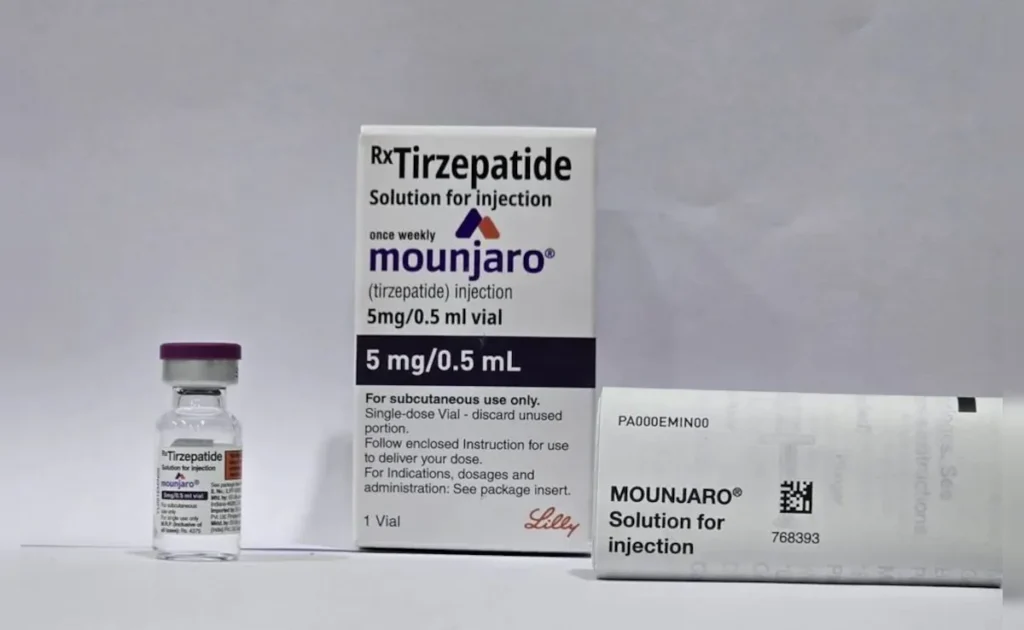The rising use of Ozempic and Mounjaro for weight loss in the UAE has sparked urgent warnings from medical professionals. Originally approved to treat type 2 diabetes, these powerful medications are now being widely misused by people looking for a quick way to shed extra kilos.
Health experts across the Emirates say they are increasingly seeing non-diabetic patients using these drugs as weight loss aids, sometimes without proper prescriptions or medical supervision. Doctors are warning that this trend, fueled largely by social media and celebrity culture, is not only risky but could lead to severe health consequences.
What Are Ozempic and Mounjaro and Why Are They Popular?
Ozempic (semaglutide) and Mounjaro (tirzepatide) are injectable medications designed to improve blood sugar control in people with type 2 diabetes. These drugs work by mimicking the GLP-1 hormone that regulates blood sugar and appetite. In clinical trials, many patients reported weight loss as a beneficial side effect.

Because of this, the drugs quickly gained popularity for another purpose: weight loss, especially among people who are not diabetic. In fact, some celebrities have openly discussed using these drugs to slim down, which has only boosted their popularity in the wellness and beauty space.
The New Weight Loss Trend in the UAE
In the UAE, demand for these drugs has skyrocketed, particularly in major cities like Dubai and Abu Dhabi. According to several doctors, patients without diabetes are walking into clinics specifically asking for Ozempic or Mounjaro, having read about them online or seen them promoted on social media.

Dr. Reem Osman, Group CEO of Saudi German Health UAE, says, “We’re seeing a wave of people—some as young as their early 20s—requesting these medications just to lose a few kilos. This is not what they were designed for.”
While some doctors cautiously prescribe these medications to clinically obese patients who haven’t responded to lifestyle changes, off-label use by otherwise healthy individuals is becoming worryingly common.
The Dangers of Off-Label Use
Medical experts warn that using Ozempic and Mounjaro for weight loss without medical supervision carries serious risks. These include:
- Severe gastrointestinal side effects: including nausea, vomiting, constipation, and abdominal pain
- Muscle loss: instead of losing just fat, the body may also break down muscle tissue
- Pancreatitis: inflammation of the pancreas, a potentially life-threatening condition
- Gallbladder issues: such as gallstones due to rapid fat loss
- Hypoglycemia: dangerously low blood sugar, especially in people without diabetes
- Mental health side effects: anxiety, disordered eating behaviors, or even depression due to rapid weight fluctuation
Dr. Ossama Zakaria, Consultant of Internal Medicine at Medcare, notes, “It’s not just about side effects. It’s also about dependency. Many users find they regain weight as soon as they stop taking the drug, which pushes them to keep using it unnecessarily.”
Case Study: A Wake-Up Call
One Dubai resident, who asked not to be named, shared her experience after using Ozempic for two months. “I lost nearly 7 kg in just a few weeks, but I felt constantly nauseous and weak. When I stopped taking it, the weight came back quickly.”
She said she got the prescription through a wellness clinic that didn’t ask for blood sugar testing or a medical history. “It felt like a shortcut at the time, but I now realize I took a big risk.”
Doctors say such cases are becoming common and are deeply concerning.
The Role of Social Media and Body Image Pressure

The rise in the off-label use of these medications has a lot to do with the culture of fast fixes and the influence of online platforms. TikTok, Instagram, and YouTube are full of testimonials, transformation videos, and how-to guides related to Ozempic and Mounjaro.
Dr. Zakaria explains, “There’s a psychological factor at play. People are being bombarded with messages that thinner is better, and that there’s an easy fix. But health doesn’t work like that.”
Many patients are unaware that long-term use of these drugs can lead to nutritional deficiencies, hormonal imbalances, and mental burnout.
Why Doctors Are Pushing Back
Doctors in the UAE are pushing back hard against this misuse, and some are refusing to prescribe the medications unless the patient meets clear medical criteria—such as a BMI over 30 or obesity-related health issues.
“This is a clinical treatment, not a lifestyle product,” says Dr. Osman. “Every injection changes your metabolic function. It’s not to be taken lightly.”
She adds that misusing these drugs undermines their intended purpose—to help manage life-threatening conditions like diabetes and severe obesity.
Legal and Regulatory Response in the UAE
In response to the growing concerns, the UAE’s Ministry of Health and Prevention (MoHAP) has issued updated reminders to healthcare professionals regarding the proper prescription of GLP-1 medications.
Pharmacies across the country have been instructed to tighten regulations around these drugs, requiring proof of diagnosis or physician approval before dispensing them.
Some clinics have also started requiring lab reports and BMI checks before issuing Ozempic or Mounjaro.
These steps are meant to ensure that only those who truly need the medications, based on medical guidelines, can access them.
What Are the Alternatives for Safe Weight Loss?
UAE doctors are emphasizing the need to focus on long-term, sustainable strategies for weight loss. These include:
- Balanced, portion-controlled diets
- Daily exercise routines, even simple walking or swimming
- Stress management through yoga or mindfulness
- Medical nutrition therapy under a dietitian’s guidance
- Behavioral counseling for people with emotional eating patterns
In some cases, doctors may still consider anti-obesity medications, but only as a last resort and under strict monitoring.
“Weight loss should be a journey,” says Dr. Zakaria. “It’s about health, not just a number on the scale.”
The Bottom Line: Proceed With Caution

There’s no doubt that Ozempic and Mounjaro are powerful medications. For people with type 2 diabetes or clinically diagnosed obesity, they can be life-changing. But for those seeking a quick fix, they may be doing more harm than good.
Doctors across the UAE are urging residents to stop looking for shortcuts and start focusing on lifestyle, nutrition, and long-term health.
“These are not beauty treatments,” says Dr. Osman. “They are medical tools. Misusing them can cost you more than you bargained for.”
Key Takeaways for UAE Residents
- Always consult a licensed physician before starting any medication for weight loss
- Avoid following online trends that promote medical treatments without context
- Understand the long-term commitment that comes with using medications like Ozempic and Mounjaro
- Focus on healthy habits, not just temporary results
- Report side effects or any unapproved sales of these drugs to local health authorities
Do follow UAE Stories on Instagram
Read More: Al Habtoor Investments in Syria: A Bold New Expansion Plan












